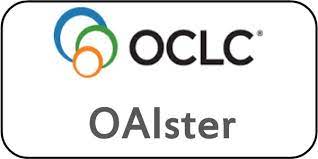Clinical Evaluation of an Ayurvedic Preparation “Sangfer” for the Treatment of Anemia in Pregnant Women: An Open-labeled Clinical Study
DOI:
https://doi.org/10.59793/ijcp.v34i8.760Keywords:
Iron deficiency anemia,, pregnancy, liquid,, medicinal herbs, hemoglobin,, anemia sign, symptom scoresAbstract
Background: Iron deficiency during pregnancy is one of the primary causes of anemia in infants and young children. It
has a negative impact on maternal and fetal health throughout pregnancy with higher likelihood of adverse maternal and
fetal outcomes. Maternal iron supplementation is a critical tool to address the global problem of iron deficiency and prevent
its negative consequences. Method: An open-label non-comparative prospective clinical trial was carried out to evaluate
the effectiveness of “Sangfer” liquid in 16 pregnant women with anemia. “Sangfer” is a polyherbal Ayurvedic proprietary
medication containing elemental iron and zinc and four medicinal herbs viz. Withania somnifera, Emblica officinalis, Asparagus
racemosus and Pueraria tuberosa. The aim of the study was to examine its efficacy and safety in treating anemia in pregnant
women. The dose administered was 10 mL twice daily after food for 12 weeks (84 days). Patients were evaluated at screening
(Visit 1 at Day 0), baseline (Visit 2 at Day 1) and during follow-ups (Visit 3 at Day 28, Visit 4 at Day 56 and Visit 5 at
Day 84). Results: There was a significant increase in mean hemoglobin levels from 8.08% at Day 1 to 11.19% at the final
visit at Day 84. The anemia sign and symptom scores also significantly reduced from Day 1 to different follow-up visits.
The mean Physician Global Assessment (PGA) score was found to reduce from 1.0 at Day 1 to 0.0 at the final follow-up
visit. Conclusion: “Sangfer” is highly effective for the treatment of anemia during pregnancy. No adverse effects including
serious adverse effects were observed during the study period.
Downloads
Published
Issue
Section
License
All open access articles published in IJCP are distributed under the terms of the CC BY-NC 4.0 license (Creative Commons Attribution-Non-Commercial 4.0 International Public License). This license permits unrestricted use, distribution, and reproduction of the articles in any medium for non-commercial purposes, provided that: The original authorship is properly and fully attributed. The IJCP is cited as the original place of publication with correct citation details. If an original work is reproduced or disseminated in part or as a derivative work, this must be clearly indicated. No articles are reproduced for commercial use without prior consent from the IJCP. All licensing requests and permissions for commercial use will be managed by the Publisher.














